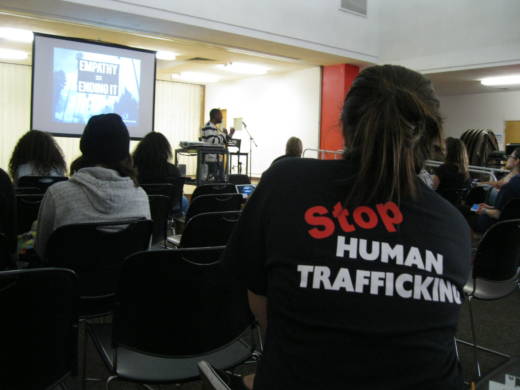"We've been seeing this need for a long time, and it's nice to see it backed up by data," said Carly Devlin, the intervention services coordinator for Huckleberry Youth Programs.
Devlin said the experience of youth who have been trafficked for sex varies for each individual and situation.
"We need to be really attentive to youth needs and what do individualized services look like for young people," she said.
Kandel said most of these children are U.S. residents and not from other countries, and are often a part of the foster and/or juvenile justice systems. According to Kandel, the vast majority of the young people identified in the report as having been trafficked for sex were African-Americans.
The report also sheds light on some of the strides that have been made in the past year in the area of youth sex trafficking, including decriminalizing prostitution for minors, a 24-hour crisis hotline and services for sexually exploited youth, and an increase in focus and training on human trafficking by the San Francisco Unified School District.
Devlin said that finding a way to house youth who have been trafficked is crucial to helping them move on. She said there are very few housing options in the child welfare system for youth in the city where many want to be, and that also take into account the specific needs of this population.
"What would it take to have responsive housing that meets youth where they’re at?" she said.
Other accomplishments highlighted by the report include stronger licensing and enforcement of massage establishments in San Francisco, funding for bilingual outreach to workers in vulnerable industries and support for the No Traffick Ahead Campaign to encourage hotels and restaurants to address human trafficking.
Women, including transgender women, accounted for 80 percent of the cases where the victim's gender was known.
"We know that women and girls are over-represented in trafficking victims," Kandel said, as are LGBT youth. "It was very important for us to try to the extent that we could collect information on gender and including transgender youth.''
Kandel admits that the are many imperfections with the data in this report and all data concerning human trafficking, but that it can help establish a baseline to better understand the issue in the Bay Area.
"There are very few other cities that are doing this kind of data collection," she said.
She said improving data collection by removing duplicates will be an important next step as well as using this data to increase services for survivors.
